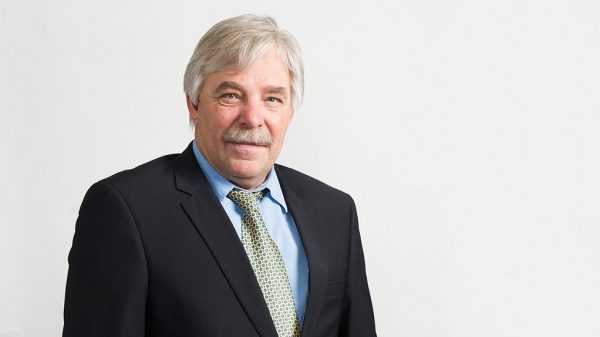DELIVERY AGAINST STRATEGIC PRIORITIES, WHILE DRAWING ON EFFICIENCIES UNDERPIN THE ANNUAL PERFORMANCE
- HEPS up 33% to 20 cents and EPS up 60% at 16 cents
- Group EBITDA increased by 4% to R1.9 billion with DRC contributing R108 million
- EBITDA cash conversion ratio of 1.0x
- Realised R60/tonne of R70/tonne savings initiatives
- 10% volume growth in Rest of Africa operations
PPC Ltd. today announced its financial results for the twelve months ended 31 March 2019.
Johan Claassen, PPC CEO commented: “We have produced a solid set of results, despite a number of once-off impacts and having to navigate through challenging trading conditions across markets. The successful implementation of the FOH – FOUR strategic priorities realised significant cost savings and these actions position the group well for the future.”
Group revenue rose by 1% to R10.4 billion with total cement volumes having increased 1% to 5.9 million tonnes. Higher cost of sales in DRC, southern Africa cement, and the materials division resulted in a 6% increase in the group’s cost of sales to R8.4 billion. Group overhead costs were significantly reduced by 19% or R260 million, benefitting from head office restructuring and the R70/tonne cost savings initiatives in southern Africa. Group EBITDA ended the period up 4% at R1,9 billion.
Net movement in cash and cash equivalents saw an inflow of R126 million compared with an outflow of R59 million in FY18; aided by improved working capital management which resulted in the release of R63 million, and a R151 million reduction in cash taxation paid. Impacted by rand weakness, the Gross debt increased 6% to R5 billion. Finance costs rose marginally by 1% to R681 million as lower finance charges in South Africa were offset by higher finance costs in Rest of Africa.
Tryphosa Ramano, PPC CFO commented: “Positive free cashflow was used to repay debt obligations, which remained within targeted levels. Our liquidity position was well managed with a smoother debt maturity profile.”
The southern African cement division, which includes Botswana, contributed slightly less revenue of R5,4 billion. Volumes declined by 2% to 3% with both the consumer and the construction industry customer segments experiencing market pressure. This was compounded by increased competition from imports which rose 84% for the 2018 calendar year, and higher levels of blended product production. Average selling price increases of 1% to 2% were realised during the period. Cost of sales however rose by 6%, driven primarily by a 10% increase in distribution costs on a per tonne basis. This was as a result of a 30% increase in fuel prices for the period under review. All other production costs were well controlled within the 5% to 7% range. The commissioning of SK9 and unplanned Dwaalboom shutdown had a once-off negative impact of R78 million on EBITDA which ended the period down at R957 million.
“We have made good progress in terms of the R70/tonne saving initiatives. Cumulatively, we have achieved R60/tonne in savings since October 2017. We will continue to drive operational cost efficiencies in order to achieve targeted savings,” added Claassen.
The Materials business comprising of the Aggregates and ready-mix, and Lime divisions, delivered revenue growth of 7% and contributed R140 million to group EBITDA. This business forms an integral part of the cement route to market strategy.
“Our Rest of Africa operations delivered a pleasing performance having grown volumes by 10%; increased revenues by 2% to R2.8 billion; and achieved 10% growth in EBITDA to R810 million. Volumes were supported by the ramp up of DRC and a positive contribution from Rwanda post the debottlenecking in the first half of the financial year,” remarked Claassen.
Despite the successful implementation of the route to market strategy, PPC Zimbabwe experienced a weaker cement market, clinker shortages, and a depreciation in the functional currency in the second half of the financial year which resulted in a contraction of revenue to R1,4 billion and a decline in volumes of 5%. EBITDA accordingly reduced to R461 million. “PPC Zimbabwe is operationally self-sufficient and is driving local procurement and exports to reduce forex requirements. Debt obligations continue to be serviced using in-country cash resources, while management has implemented contingency measures to mitigate the impact of the liquidity challenges,” added Claassen.
In Rwanda, CIMERWA achieved revenue growth of 10% to R885 million on the back of a 5% increase in volumes. Revenues were additionally supported by higher realised cement prices in US dollar. EBITDA however declined to R246 million owing to the planned shutdown for debottlenecking and clinker imports during the shutdown period, which amounted to a non-recurring EBITDA impact of around R100 million.
In DRC, PPC Barnet’s production ramp up bolstered revenue to R494 million from R144 million. Entrenchment of route to market initiatives supported the business to achieve market share of between 25% to 30%, and EBITDA of R108 million, boosted by stringent cost control.
Habesha in Ethiopia, although still in ramp up phase, achieved volumes of more than 500 000 tonnes. An action plan is being implemented to resolve the operational challenges including sub-optimal plant performance and pricing which resulted in an equity accounted loss of R67 million.
“We are committed to achieving sustainable price increases, optimising operational efficiencies, and reducing financial leverage to counter the challenging operating environment in South Africa, which is expected to continue. We’ll also continue to focus on achieving our R70/tonne profitability initiatives, assess opportunities to refine our network and optimise our support structure.
“Our Rest of Africa operations are well-positioned to take advantage of growth supported by stable political environments. PPC Zimbabwe continues to focus on cash preservation, self-sufficiency and optimising operations while CIMERWA is expected to capitalise on expanded production capacity and output. We’ll continue to ramp up our DRC operation with a focus on maximising EBITDA,” concluded Claassen.
ENDS
Financial Communications Advisor:
Instinctif Partners
| Gift Dlamini Mobile: +27 (82) 608 6587 Gift.Dlamini@instinctif.com | Louise Fortuin Mobile: +27 (71) 605 4294 louise.fortuin@instinctif.com |
About PPC Ltd
A leading supplier of cement, lime and related products in southern Africa, PPC has 11 cement factories and a lime manufacturing facility in six African countries including South Africa, Botswana, DRC, Ethiopia, Rwanda and Zimbabwe. The recent commissioning of PPC’s milling depot, located in Harare, Zimbabwe and new plants in the DRC and Ethiopia bring PPC’s capacity to around eleven and a half million tonnes of cement products each year, compared to 8 million tonnes in 2015.
As part of its strategy and long-term vision, PPC is expanding its operations in South Africa with the modernisation of its PPC Slurry complex outside Mafikeng in the North West province.
PPC’s Materials business, comprising of Pronto Holdings (including Pronto Building Materials, Ulula Ash and 3Q Mahuma Concrete), forms part of the company’s channel management strategy for southern Africa. PPC’s footprint in the readymix sector has grown to include 29 batching plants across South Africa and Mozambique and also has the capacity to produce half a million tonnes of fly ash. PPC also produces aggregates in South Africa and Botswana.
PPC Lime, one of the largest lime producers in the southern hemisphere, produces metallurgical-grade calcitic and dolomitic lime and sinter stone used mainly in the steel and related industries.
Follow PPC on Twitter @PPC_Africa, like us on www.facebook.com/PPC.Cement and visit us at www.ppc.co.za.






